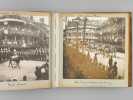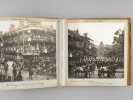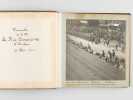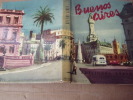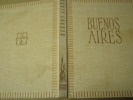804 books for « stern j p »Edit
-
Type
Autograph (2)
Book (718)
Music sheets (82)
Photographs (1)
Postcards (1)
-
Latest
Last 3 days (1)
Last month (10)
Last week (3)
-
Language
English (3)
French (790)
German (2)
Hebrew (1)
Russian (8)
-
Century
18th (4)
19th (36)
20th (406)
21st (56)
-
Countries
Belgium (35)
Canada (7)
China (4)
Denmark (12)
France (670)
Germany (1)
Italy (2)
Switzerland (64)
United Kingdom (1)
United States of America (8)
-
Syndicate
ALAC (7)
CLAM (2)
CLAQ (1)
ILAB (351)
NVVA (7)
SLACES (7)
SLAM (317)
SNCAO (1)
Topics
- Agoult marie d (14)
- Alsace (3)
- Angkor (3)
- Archaeology (8)
- Architecture (9)
- Asia - orient (11)
- Astrology (10)
- Austria (3)
- Autographs (6)
- Biography (8)
- Castles (3)
- Children’s books (3)
- Cinema (9)
- Civilisation (6)
- Comic strip (6)
- Cooking (2)
- Culinary art (2)
- Dauphiné (2)
- Detective novels (3)
- Early printed books (7)
- Economics (3)
- Education (6)
- Education - morals (3)
- England (3)
- English (13)
- Esotericism (3)
- Ex-libris (4)
- Feminism (3)
- Fine arts (12)
- First edition (4)
- Fox (5)
- Geography (5)
- German history (2)
- Germanic languages (8)
- Germany (12)
- Germany pc (2)
- Helvética (7)
- History (34)
- Hitler (3)
- Horse riding (4)
- India (18)
- Industrial arts & crafts - fine arts (9)
- Isaac (2)
- Israel (5)
- Japan (3)
- Judaism (judaica) (3)
- Khmer art cambodia (8)
- Law (6)
- Literature (51)
- Mathematics (4)
- Medicine (7)
- Navigation (3)
- Navy (8)
- Nazism (3)
- Painting (4)
- Paris (10)
- Philosophy (12)
- Photography (18)
- Physics (8)
- Piano (2)
- Poetry (5)
- Policy (5)
- Posters (4)
- Psychoanalysis (5)
- Psychology (14)
- Raphael (4)
- Regionalism (2)
- Religions (8)
- Review (4)
- Robin (2)
- Rock (3)
- Rock (3)
- Rollin (3)
- Sail (6)
- Scores (90)
- Sculpture (3)
- Social sciences (2)
- Songs (76)
- Sports (2)
- Star (8)
- Stern jean (15)
- Stern philippe (11)
- Surgery (6)
- Switzerland (5)
- Theatre (15)
- United kingdom (6)
- Ussr (5)
- Various (6)
- Virgin mary (2)
- Waltz (5)
- War (10)
- Women (the) (3)
- Zoology (2)
Jubilé de la Reine Victoria. 22 juin 1897. Album unique composé de documents collectés par Ernesta Stern dont : Plan de l'itinéraire de la procession ; 6 photographies par Downey, photographe de la Reine ; Portrait de la reine par Nicholson (gravure sur bois en couleurs) ; 3 invitations diverses ; Programme du Royal Opera Covent Garden du 23 juin 1897, sur soie à galons d'argent ("To commemorate the sixtieth anniversary of Her Majest's Accession to the Throne") ; 5 ephemera dont invitation de Lord Chamberlain à l'Afternoon Party du 28 juin 1897 à Buckingham Palace ("The Lord Chamberlain is commanded by The Queen to invite Monsieur & Madame Stern & Mademoiselle Stern to an afternoon Party on Monday, the 28th of June, from 5 to 7 o'Clock. Buckingham Palace") , etc... - Jubilee of Queen Victoria. June 22, 1897. Unique album composed of documents collected by Ernesta Stern including: Map of the route of the procession; 6 photographs by Downey, photographer to the Queen; Portrait of the Queen by Nicholson (colour woodcut); 3 various invitations; Program of the Royal Opera Covent Garden of June 23, 1897, on silk with silver braid ("To commemorate the sixtieth anniversary of Her Majest's Accession to the Throne"); 5 ephemera including Lord Chamberlain's invitation to the Afternoon Party of 28 June 1897 at Buckingham Palace ("The Lord Chamberlain is commanded by The Queen to invite Monsieur & Madame Stern & Mademoiselle Stern to an afternoon Party on Monday, the 28th of June, from 5 to 7 o'Clock. Buckingham Palace"), etc.
Album in-folio oblong (41 x 63 cm) pleine toile grise d'époque, armes d'Angleterre peintes sur le premier plat, médaille incrustée en bas du premier plat ("Victoria Regina et Imperatrix" à l'avers, "In Commemoration Victoria 1837-1897" au revers), Jubilé de la Reine Victoria. 22 juin 1897. Album unique composé de documents collectés par Ernesta Stern dont : Plan de l'itinéraire de la procession ; 6 photographies par Downey, photographe de la Reine ; Portrait de la reine par Nicholson (gravure sur bois en couleurs) ; 3 invitations diverses ; Programme du Royal Opera Covent Garden du 23 juin 1897, sur soie à galons d'argent ("To commemorate the sixtieth anniversary of Her Majest's Accession to the Throne") ; 5 ephemera dont invitation de Lord Chamberlain à l'Afternoon Party du 28 juin 1897 à Buckingham Palace ("The Lord Chamberlain is commanded bu The Queen to invite Monsieur & Madame Stern & Mademoiselle Stern to an afternoon Party on Monday, the 28th of June, from 5 to 7 o'Clock. Buckingham Palace") - Jubilee of Queen Victoria. June 22, 1897. Unique album composed of documents collected by Ernesta Stern including: Map of the route of the procession; 6 photographs by Downey, photographer to the Queen; Portrait of the Queen by Nicholson (colour woodcut); 3 various invitations; Program of the Royal Opera Covent Garden of June 23, 1897, on silk with silver braid ("To commemorate the sixtieth anniversary of Her Majest's Accession to the Throne"); 5 ephemera including Lord Chamberlain's invitation to the Afternoon Party of 28 June 1897 at Buckingham Palace ("The Lord Chamberlain is commanded bu The Queen to invite Monsieur & Madame Stern & Mademoiselle Stern to an afternoon Party on Monday, the 28th of June, from 5 to 7 o'Clock. Buckingham Palace")
Impressionnant album souvenir unique du Jubilé de la Reine Victoria, composé par Ernesta Stern (1854-1926) alias "Maria Star", écrivain fameuse pour son salon du Faubourg Saint-Honoré où elle accueillit notamment Marinetti ou Marcel Proust. Née Maria Ernesta Hierschel de Minerbi, elle épousa le banquier Louis Stern. Etat très satisfaisant (frottements et rousseurs, plusieurs feuillets débrochés). Impressive unique souvenir album of Queen Victoria's Jubilee, composed by Ernesta Stern (1854-1926) alias "Maria Star", famous writer for her salon in Faubourg Saint-Honoré where she notably welcomed Marinetti or Marcel Proust. Born Maria Ernesta Hierschel de Minerbi, she married the banker Louis Stern (binding rubbed, some foxing, several unstitched leaves).
Mailer (Norman), Monroe (Marilyn) et Stern (Bert) - Lawrence Schiller et J. Michael Lennon, eds.
Reference : 87148
(2012)
Norman Mailer, Marilyn Monroe, Bert Stern - Conception de Lawrence Schiller, Texte de Norman Mailer, édité par J. Michael Lennon (Photographies - Textes de Norman Mailer - Text in French, textes en français)
Editions Taschen Malicorne sur Sarthe, 72, Pays de la Loire, France 2012 Book condition, Etat : Très Bon relié, cartonnage éditeur blanc, illustrée d'une photographie de Marilyn Monroe dans un déshabillé jaune et orange, sous rhodoid illustré en couleurs Large In-4 1 vol. - 275 pages
très nombreuses photographies en couleurs et en noir et blanc, certaines pleine page 1ere traduction en français, 2012 "Contents, Chapitres : Bert Stern : 4 jours de juin 1962 - Lawrence Schiller : A ma gauche Norman Mailer - 1. Biographie romanesque - 2. Enterrée vivante - Norma Jean - Snively, Schenck, Karger and Hyde - Marilyn Monroe Productions - La princesse juive - La solitaire - Notice, 1973 - J. Michael Lennon : Norman Mailer, une vie - Bert Stern, une biographie - Crédits - Norman Kingsley Mailer, né le 31 janvier 1923 à Long Branch dans le New Jersey aux États-Unis et mort le 10 novembre 2007 à New York, est un écrivain américain, un scénariste, un réalisateur et un acteur de cinéma. Norman Mailer est aussi connu comme biographe, il a par exemple écrit sur Marilyn Monroe, sur Pablo Picasso et sur Lee Harvey Oswald. Il fut aussi acteur (Ragtime de Milo Forman en 1982 ; King Lear de Jean-Luc Godard en 2002) et réalisateur (Wild 90 en 1967, Au-dessus des lois en 1968 et Maidstone en 1969). Les vrais durs ne dansent pas, avec Isabella Rossellini et Ryan O'Neal, adapté d'un de ses romans, fut sélectionné au Festival de Cannes en 1986. Il s'était marié six fois et a eu neuf enfants (dont un adopté avec sa dernière épouse). - Bertram Stern, connu sous le nom de Bert Stern, né le 3 octobre 1929 à Brooklyn (New York) et mort le 26 juin 20131, à 83 ans à son domicile de Manhattan (même ville), est un photographe de mode américain, spécialiste de portraits de célébrités. Son uvre la plus connue est sans doute The Last Sitting, une collection de 2 500 photographies prises de Marilyn Monroe sur une période de trois jours, six semaines avant qu'elle meure, prises pour le magazine Vogue. Stern a publié Marilyn Monroe: The Complete Last Sitting en 1992. (source : Wikipedia)" bel exemplaire, frais et propre, sous rhodoid, magnifique ouvrage avec une partie des célèbres photographies de Bert Stern, prises en juin 1962, quelques jours avant le décès de Marilyn Monroe
Über die magnetische Ablenkung von Wasserstoffmolekülen und das magnetische Moment des Protons. I. - [NOBEL PRIZE IN PHYSICS 1943 - FIRST MEASUREMENT OF THE PROTON MAGNETIC MOMENT]
Berlin, Springer, 1933. 8vo. In contemporary halv cloth with gilt lettering to spine. In ""Zeitschrift für Physik"", Bd. 85, 1933. Entire volume offered. Stamp to front free end-paper and titlepage, otherwise fine and clean. Pp. 4-16. [Entire volume: VIII, 811 pp.].
First printing of Stern and Frisch's seminal paper with the very first measurement of the proton magnetic moment constituting the earliest experimental evidence for the internal structure of the nucleon. ""It is this work that was specifically mentioned in Stern's Nobel Prize citation"" (DSB) in 1943 when he was awarded the prize ""for his contribution to the development of the molecular ray method and his discovery of the magnetic moment of the proton"".""Dirac had promulgated a theory according to which the ratio of the magnetic moment of the proton to that of the electron should have been the same as the inverse ratio of their masses. This theory was believed so generally that when Stern, O. R. Frisch, and this writer began the very difficult experiments, they were told more than once by eminent theoreticians that they were wasting their time and effort. But Stern's perseverance paid off. Measurements showed a proton magnetic moment two or three times larger than expected. While that result has since been reproduced with greater accuracy, a really satisfactory theoretical explanation is still outstanding. It is this work that was specifically mentioned in Stern's Nobel Prize citation."" (DSB)The magnetic moment of the proton, first measured in 1933 by Frisch and Stern, was the earliest experimental evidence for the internal structure of the nucleon. Although the theory of strong interactions, Quantum Chromodynamics (QCD), is over 20 years old, a quantitative description of the magnetic moments of the nucleons based on QCD remains an elusive goal. The phenomenal quantitative success of the standard electroweak theory now allows one to use the weak interaction to obtain additional information on the magnetic properties of the nucleon. In particular, the measurement of the strength of the magnetic interaction with the neutral weak boson Z0(when combined with the usual magnetic interaction with the photon) enables a decomposition of the nucleon magnetism into the contributions arising from the three relevant quark flavors (up, down, and strange). (American Physical Society)The present volume also contain Estermann and Stern paper: ""Über sie magnetische Ablenkung von Wasserstoffmolekülen und das magnetische Moment des Protons"" in which they demonstrated the existence of de Broglie Waves for Atom and molecules.
Über die magnetische Ablenkung von Wasserstoffmolekülen und das magnetische Moment des Protons. I.
Berlin, Springer, 1933. 8vo. In contemporary halv cloth with gilt lettering to spine. In ""Zeitschrift für Physik"", Bd. 85, 1933. Entire volume offered. Stamp to front free end-paper and titlepage, otherwise fine and clean. Pp. 4-16. [Entire volume: VIII, 811 pp.].
First printing of Stern and Frisch's seminal paper with the very first measurement of the proton magnetic moment constituting the earliest experimental evidence for the internal structure of the nucleon. ""It is this work that was specifically mentioned in Stern's Nobel Prize citation"" (DSB) in 1943 when he was awarded the prize ""for his contribution to the development of the molecular ray method and his discovery of the magnetic moment of the proton"".""Dirac had promulgated a theory according to which the ratio of the magnetic moment of the proton to that of the electron should have been the same as the inverse ratio of their masses. This theory was believed so generally that when Stern, O. R. Frisch, and this writer began the very difficult experiments, they were told more than once by eminent theoreticians that they were wasting their time and effort. But Stern's perseverance paid off. Measurements showed a proton magnetic moment two or three times larger than expected. While that result has since been reproduced with greater accuracy, a really satisfactory theoretical explanation is still outstanding. It is this work that was specifically mentioned in Stern's Nobel Prize citation."" (DSB)The magnetic moment of the proton, first measured in 1933 by Frisch and Stern, was the earliest experimental evidence for the internal structure of the nucleon. Although the theory of strong interactions, Quantum Chromodynamics (QCD), is over 20 years old, a quantitative description of the magnetic moments of the nucleons based on QCD remains an elusive goal. The phenomenal quantitative success of the standard electroweak theory now allows one to use the weak interaction to obtain additional information on the magnetic properties of the nucleon. In particular, the measurement of the strength of the magnetic interaction with the neutral weak boson Z0(when combined with the usual magnetic interaction with the photon) enables a decomposition of the nucleon magnetism into the contributions arising from the three relevant quark flavors (up, down, and strange). (American Physical Society)The present volume also contain Estermann and Stern paper: ""Über sie magnetische Ablenkung von Wasserstoffmolekülen und das magnetische Moment des Protons"" in which they demonstrated the existence of de Broglie Waves for Atom and molecules.
Ein Weg zur experimentellen Prüfung der Richtungsquantelung im Magnetfeld [in: Zeitschr. für Physik vol. 7, 1921:] (+) Der experimentelle Nachweis des magnetischen Moments des Silberatoms [in Zeitschr. für Physik vol. 8, 1922] (+) Der experimentelle ... - [DISCOVERY OF SPATIAL QUANTIZATION - THE STERN-GERLACH EXPERIMENT]
Berlin, Julius Springer, 1921 & 1922. 8vo. Entire volumes 7-9, 1921 and 1922, of ""Zeitschrift für Physik"" bound in three contemporary half cloth bindings over marbled boards, volumes 7 and 8 in uniform bindings, volume 9 slightly differing, with more gilding to spine. Tiny marginal dampstain to the first leaves of vol. 9, and large library-stamp to front free end-papers of volumes 7-8, otherwise, all three volumes fine, clean, and tight. All three title-pages with library-stamp. Pp. 249-53" 110-11 349-55. [Entire volumes: VI, 414 pp IV, 419 pp." IV, 412 pp.].
First printing of Stern and Gerlach's seminal papers in which the first spatial quantization, atomic magnetic moments, was first presented. With these papers, the first clear proof for the spin of the electron appeared, profoundly influencing the world of physics. The discovery of the deflection of particles is often used to illustrate basic principles of quantum mechanics and demonstrates that electrons and atoms have inherent quantum properties.Spatial quantization had been introduced merely as a theoretical concept by Sommerfeld in 1916, but no one before Stern had ever empirically demonstrated its existence, and some physicists even considered it to be nothing more than a mathematical tool. In his 1921-paper Stern proposed an empirical test:""The idea for the experiment proposed by Stern was simple enough. A beam of silver atoms is produced by letting silver evaporate in an oven with a small opening. The beam is collimated and travels in X direction until it falls on a glass plate. Between collimators and plate an inhomogeneous magnetic field is produced. It points in y direction and also changes its strength as a function of y. If the atoms possess a magnetic moment, the field pulls them away from the X axis. If the moments are oriented at random, there will be a broadening of the beam. But if spatial quantization exists with just two possible orientations, then the beam will be split in two. Half the atoms are pulled in the positive and half in the negative y direction. It should be treated as a spinning top with a magnetic needle in its axis."" ( Brandt. The Harvest of a Century, p. 124).In November 1921, Stern and Gerlach observed a broadening of the beam, its size increased from 0.1 mm till 0.3 mm when the field was turned on. ""This result proved that silver atoms possess a magnetic moment. With a still better collimated beam in February 1922 where the splitting of the beam into two was observed. Spatial quantization was established."" ( Brandt. The Harvest of a Century, p. 124).Only after the birth of quantum mechanics it became clear that the atoms themselves are not turned, but that their quantum mechanical wave function assumes one of its possible values in the apparatus. The discovery penetrated all aspects of physics"" it was documented that electrons are responsible for the hyperfine structure of the spectroscopic lines and more generally that the direct observation of the spin of the electron is the most clear evidence of quantization in quantum mechanics.The three volumes also contains the following papers of interest:1. Born, Max. Über elektrostatische Gitterpotentiale. Bd. 7. pp. 124-140.2. Born, Max. Zur Thermodynamik der Kristallgitter. Bd. 7. pp. 217-248.3. Geiger, H. Reichweitemessungen an alfa-Strahlen. Bd. 8. pp. 45-58.4. Brody, E. & Max Born. Bemerkungen zy unseren Abhandlungen ""Über die Schwingungen eines mechanischen Systems mit endlicher Amplitude und ihre Quantelung"" [...] . Bd. 8. Pp. 205-208.5. Heisenberg, Werner. Zur Quantentheorie der Linienstruktur und der anomalen Zeemaneffekte. Bd. 8. pp. 273-297.6. Bohr, Niels. Der Bau der Atome und die physikalischen und chemischen Eigenschaften der Elemente. Bd. 9. pp. 1-67.And many others.
Ein Weg zur experimentellen Prüfung der Richtungsquantelung im Magnetfeld [in: Zeitschr. für Physik vol. 7, 1921:] (+) Der experimentelle Nachweis des magnetischen Moments des Silberatoms [in Zeitschr. für Physik vol. 8, 1922] - [DISCOVERY OF SPATIAL QUANTIZATION - THE STERN-GERLACH EXPERIMENT]
Berlin, Julius Springer, 1921 & 1922. 8vo. Entire volumes 7-8, 1921 and 1922, of ""Zeitschrift für Physik"" bound in two uniform contemporary half cloth bindings over marbled boards. Library-stamp to title-pages, otherwise, both volumes fine, clean, and tight. Pp. 249-53" Pp. 110-11. [Entire volumes: VI, 414 pp" IV, 419 pp.].
First printing of Stern and Gerlach's seminal papers in which the first spatial quantization, atomic magnetic moments, was first presented. With these papers, the first clear proof for the spin of the electron appeared, profoundly influencing the world of physics. The discovery of the deflection of particles is often used to illustrate basic principles of quantum mechanics and demonstrates that electrons and atoms have inherent quantum properties.Spatial quantization had been introduced merely as a theoretical concept by Sommerfeld in 1916, but no one before Stern had ever empirically demonstrated its existence, and some physicists even considered it to be nothing more than a mathematical tool. In his 1921-paper Stern proposed an empirical test:""The idea for the experiment proposed by Stern was simple enough. A beam of silver atoms is produced by letting silver evaporate in an oven with a small opening. The beam is collimated and travels in X direction until it falls on a glass plate. Between collimators and plate an inhomogeneous magnetic field is produced. It points in y direction and also changes its strength as a function of y. If the atoms possess a magnetic moment, the field pulls them away from the X axis. If the moments are oriented at random, there will be a broadening of the beam. But if spatial quantization exists with just two possible orientations, then the beam will be split in two. Half the atoms are pulled in the positive and half in the negative y direction. It should be treated as a spinning top with a magnetic needle in its axis."" ( Brandt. The Harvest of a Century, p. 124).In November 1921, Stern and Gerlach observed a broadening of the beam, its size increased from 0.1 mm till 0.3 mm when the field was turned on. ""This result proved that silver atoms possess a magnetic moment. With a still better collimated beam in February 1922 where the splitting of the beam into two was observed. Spatial quantization was established."" ( Brandt. The Harvest of a Century, p. 124).Only after the birth of quantum mechanics it became clear that the atoms themselves are not turned, but that their quantum mechanical wave function assumes one of its possible values in the apparatus. The discovery penetrated all aspects of physics"" it was documented that electrons are responsible for the hyperfine structure of the spectroscopic lines and more generally that the direct observation of the spin of the electron is the most clear evidence of quantization in quantum mechanics.The three volumes also contains the following papers of interest:1. Born, Max. Über elektrostatische Gitterpotentiale. Bd. 7. pp. 124-140.2. Born, Max. Zur Thermodynamik der Kristallgitter. Bd. 7. pp. 217-248.3. Geiger, H. Reichweitemessungen an alfa-Strahlen. Bd. 8. pp. 45-58.4. Brody, E. & Max Born. Bemerkungen zy unseren Abhandlungen ""Über die Schwingungen eines mechanischen Systems mit endlicher Amplitude und ihre Quantelung"" [...] . Bd. 8. Pp. 205-208.5. Heisenberg, Werner. Zur Quantentheorie der Linienstruktur und der anomalen Zeemaneffekte. Bd. 8. pp. 273-297.And many others.
Ein Weg zur experimentellen Prüfung der Richtungsquantelung im Magnetfeld [in: Zeitschr. für Physik vol. 7, 1921:] (+) Der experimentelle Nachweis des magnetischen Moments des Silberatoms [in Zeitschr. für Physik vol. 8, 1922] - [DISCOVERY OF SPATIAL QUANTIZATION - THE STERN-GERLACH EXPERIMENT]
Berlin, Julius Springer, 1921 & 1922. 8vo. Bound in two uniform contemporary. In ""Zeitschrift für Physik"", Vol. 7, 8 & 9, 1922. All three volumes offered. Both with library stamp to title page and light wear to extremities. A fine set. Pp. 249-53" 110-11 349-55. [Entire volumes: VI, 414 pp IV, 419 pp." IV, 412 pp.].
First printing of Stern and Gerlach's seminal papers in which the first spatial quantization, atomic magnetic moments, was first presented. With these papers, the first clear proof for the spin of the electron appeared, profoundly influencing the world of physics. The discovery of the deflection of particles is often used to illustrate basic principles of quantum mechanics and demonstrates that electrons and atoms have inherent quantum properties.Spatial quantization had been introduced merely as a theoretical concept by Sommerfeld in 1916, but no one before Stern had ever empirically demonstrated its existence, and some physicists even considered it to be nothing more than a mathematical tool. In his 1921-paper Stern proposed an empirical test:""The idea for the experiment proposed by Stern was simple enough. A beam of silver atoms is produced by letting silver evaporate in an oven with a small opening. The beam is collimated and travels in X direction until it falls on a glass plate. Between collimators and plate an inhomogeneous magnetic field is produced. It points in y direction and also changes its strength as a function of y. If the atoms possess a magnetic moment, the field pulls them away from the X axis. If the moments are oriented at random, there will be a broadening of the beam. But if spatial quantization exists with just two possible orientations, then the beam will be split in two. Half the atoms are pulled in the positive and half in the negative y direction. It should be treated as a spinning top with a magnetic needle in its axis."" ( Brandt. The Harvest of a Century, p. 124).In November 1921, Stern and Gerlach observed a broadening of the beam, its size increased from 0.1 mm till 0.3 mm when the field was turned on. ""This result proved that silver atoms possess a magnetic moment. With a still better collimated beam in February 1922 where the splitting of the beam into two was observed. Spatial quantization was established."" ( Brandt. The Harvest of a Century, p. 124).Only after the birth of quantum mechanics it became clear that the atoms themselves are not turned, but that their quantum mechanical wave function assumes one of its possible values in the apparatus. The discovery penetrated all aspects of physics"" it was documented that electrons are responsible for the hyperfine structure of the spectroscopic lines and more generally that the direct observation of the spin of the electron is the most clear evidence of quantization in quantum mechanics.The three volumes also contains the following papers of interest:1. Born, Max. Über elektrostatische Gitterpotentiale. Bd. 7. pp. 124-140.2. Born, Max. Zur Thermodynamik der Kristallgitter. Bd. 7. pp. 217-248.3. Geiger, H. Reichweitemessungen an alfa-Strahlen. Bd. 8. pp. 45-58.4. Brody, E. & Max Born. Bemerkungen zy unseren Abhandlungen ""Über die Schwingungen eines mechanischen Systems mit endlicher Amplitude und ihre Quantelung"" [...] . Bd. 8. Pp. 205-208.5. Heisenberg, Werner. Zur Quantentheorie der Linienstruktur und der anomalen Zeemaneffekte. Bd. 8. pp. 273-297.6. Bohr, Niels. Der Bau der Atome und die physikalischen und chemischen Eigenschaften der Elemente. Bd. 9. pp. 1-67.And many others.
Stern L. The Koran or the life, character, and feelings of Lawrence Stern. In R
Stern L. The Koran or the life, character, and feelings of Lawrence Stern. In Russian /Stern L. Koran ili zhizn, kharakter i chuvstva Lavrentiya Sterna. In three parts. 1st Russian Edition. St. Petersburg In Imperial Typography 1809. 106 p. We have thousands of titles and often several copies of each title may be available. Please feel free to contact us for a detailed description of the copies available. SKUalb7ae9d03407df206e.
Oeuvres de L. Stern.
Paris, Chez les Libraires Associés, 1797 ; in-12 (88 x 130 mm), [4]-238 pp., XVIII-300 pp., [4]-XVI-304 pp., [4]-144-130 pp., [4]-II-152 pp. (manque le tome 6e), cartonnage plein papier simili cuir raciné, dos lisse orné de filets dorés, pièce de titre et de tomaison, tranches coloris jaune. Les 5 volumes. Sommaire: T. – I.: la Vie et les Opinions de Tristram Shandy (1re partie). – Chapitre I (p.1) au chapitre LIV (p. 232)./ T. – II.: Avertissement (p. VII), Vie de Stern (p. XI), la Vie et les Opinions de Tristram Shandy (2e partie). – Chapitre I (p.1) au chapitre CII (p. 290)./ T. – III.: Avertissement (p. I), Avis (p. IX), la Vie et les Opinions de Tristram Shandy (3e partie). – Chapitre I (p.1) au chapitre CXXI (p. 298)./ T. – IV.: la Vie et les Opinions de Tristram Shandy (4e partie). – Chapitre I (p.1) au chapitre LXII et dernier (p. 141), Mélanges, pensées, Bons mots et Mémoires de L. Stern (p. 1), Lettre de Sterne au Docteur ***, sur Tristram Shandy (p.16), Elisa, ou le Confucius femme (p.22), Mon Oncle Tobie (p.27), Moi (p.32), Sur la Mélancolie (p. 39), Sur la Sensibilité (p. 41), sur l’Esprit (p.45), Sur l’Esprit en morale (p.49), l’Esprit épigrammatique (p.51), Voyages (p.55), la Médisance (p.60), l’Orgueil (p.66), l’Éloquence des livres sacrés (p.72), le Fanatique (p.78), sur l’Humilité (p.79), ma Religion (p.83), la Conversion (p. 87), sur la Gaieté religieuse (p.88), sur la Tolérance (p.92), Pensées diverses, anecdotes et bons-mots (p.95), Avis (p.109), Fragment dans le Voyage sentimental (p.111), Mémoires sur M. Stern et sa famille, écrits par lui-même (p.117), Épitaphe de Stern, par Garrick (p.126) ./ T. – V.: Avertissement du Traducteur (p.I), Voyage sentimental en France – Chapitre 1er (p. 1) au chapitre XLVI (p. 144). Traduites de l’anglais, par Frenais et D. L. B.
Album photo du couronnement de George V et de la Reine Mary, 22 juin 1911 - King George V and Queen Mary coronation photo Album, 22nd June 1911 (Coronation Day, St Paul's Procession, Cannon Street, Oxford Street) Coronation Day : Territorials. Naval School - Life Guard drumms - Life Guards Engineers - Life Guards Band - Indians - Lord Mayor, King's Staff - Duke of Fife - Horse Guards - The King and Queen's state Carriage - The cream coloured poneys - Lord Roberts - Prince of Wales's carriage - Kronprinz and Kronprinzess of Germany's carriage - Prince's carriage - Speakers' carriage - Beef eaters - St Paul's Procession : Hussars - Infantry Band - Lancers Band - Canadians - Scot Greys Band - Indian Princesses - Indians Officers - Colonel Stratford, Colonel Staig, Sir Hedworth Lambton - Blue Jacketts - The King and Queen - Duc of Theh, Prince Louis of Battenberg, Sir Evelyn Wood, Prince Arthur - Duke of Connaught - Duke of Fife - Foreign Representation - Cannon Street : Sir Edward Henty Head of the Police - Canadian - Premier of Canada - Sir Alfred Coringto General Commander of London - King and Queen with Prince of Wale and Princess Mary - Oxford Street : The King's Outriders - The King and Queen carriage - Captain Arthur Wood of the Cameronans - Cold Stream Guards Major Marker
Album photographique pleine toile format 27 x 28 cm, armes royales peinte en plat, 52 photos format carré 21,5 x 21,5 cm : Coronation Day : Territorials. Naval School - Life Guard drumms - Life Guards Engineers - Life Guards Band - Indians - Lord Mayor, King's Staff - Duke of Fife - Horse Guards - The King and Queen's state Carriage - The cream coloured poneys - Lord Roberts - Prince of Wales's carriage - Kronprinz and Kronprinzess of Germany's carriage - Prince's carriage - Speakers' carriage - Beef eaters - St Paul's Procession : Hussars - Infantry Band - Lancers Band - Canadians - Scot Greys Band - Indian Princesses - Indians Officers - Colonel Stratford, Colonel Staig, Sir Hedworth Lambton - Blue Jacketts - The King and Queen - Duc of Theh, Prince Louis of Battenberg, Sir Evelyn Wood, Prince Arthur - Duke of Connaught - Duke of Fife - Foreign Representation - Cannon Street : Sir Edward Henty Head of the Police - Canadian - Premier of Canada - Sir Alfred Coringto General Commander of London - King and Queen with Prince of Wale and Princess Mary - Oxford Street : The King's Outriders - The King and Queen carriage - Captain Arthur Wood of the Cameronans - Cold Stream Guards Major Marker
Bel album photographique, provenant de la bibliothèque d'Ernesta Stern (1854-1926) alias "Maria Star", écrivain fameuse pour son salon du Faubourg Saint-Honoré où elle accueillit notamment Marinetti ou Marcel Proust. Née Maria Ernesta Hierschel de Minerbi, elle épousa le banquier Louis Stern. Les photos sont prises pour la plupart depuis des tribunes officielles, près de Westminster Abbey pour le Coronation Day, puis St Paul's Procession, Cannon Street, Oxford Street. Beautiful photographic album, from the library of Ernesta Stern (1854-1926), writer famous for her salon in Faubourg Saint-Honoré where she notably welcomed Marinetti or Marcel Proust. Born Maria Ernesta Hierschel de Minerbi, she married the banker Louis Stern. Photos are mostly taken from official stands, near Westminster Abbey for Coronation Day, then St Paul's Procession, Cannon Street, Oxford Street.
Album Photo des Funérailles de S.M. le Roi Edouard VII le Pacifique 20 Mai 1910 [Photo Album : Funeral of H.M. King Edward VII the Pacific May 20, 1910 ]
Album photographique pleine toile format 27 x 28 cm, drapeaux peints en plat, un bouton d'uniforme rapporté au premier plat, 37 photos format carré 21,5 x 21,5 cm : St James's Street 7 heures 1/2 du matin : La musique des Horse Guards - Les Hussards ; Les "6th Rifles" ; La Musique des Horse Guards ; Les Horse Gards le Drummer en tête ; L'Infanterie. L'automobile qui verse le sable sur le parcours ; Le défilé a commencé, les soldats des régiments d'Infanterie portent le canon du fusil baissé en signe de deuil. La foule compacte et respectueuse. Des draperies violettes ou noires à toutes les fenêtres ; Les Scott Guards ; Les Gordon's Highlanders ; L'Artillerie ; Les Hussards ; Les Life Guards ; Des Princes Indiens et des représentants des Colonies ; Lord Fisher of Kilverstone saluant le drapeau suivi des Amiraux ; Les "Blue Jackets" ; Le Duc de Norfolk saluant le drapeau. Etant Earl Marshall de la Cour par droit héréditaire, ce fut lui qui fut chargé d'organiser toutes les solennités depuis la mort du Roi et le cortège d'aujourd'hui ; Les généraux : Sir Charles Douglas. Lord Kitchener, Lord Roberts, Sir Evelyn Wood, les 3 FieldMarshall anglais ; Les représentants allemands des régiments dont le Roi était Colonel ; Les attachés militaires étrangers ; Les représentants autrichiens des régiments dont le Roi était Colonel ; "The Gun carriage" sur laquelle est drapée "The Union Jack" et l'Etendard Royal. Les couronnes royales sont posées sur des coussins ; Le chien du Roi "Caesar" conduit par un Ecossais ; Le cheval du Roi avec les bottes mises à l'envers ; Les Souverains et Princes étrangers suivent : l'Empereur d'Allemagne. Le Roi George V. Le Duc de Conaught. Le porte étendard royal ; Le trompette royal ; Grand-Duc de Hesse, Roi du Danemark ; Les Princes du Sang : Le Duc d'Aoste ; La voiture de la Reine Mary ; La voiture des Princes ; Les "Life Guards" qui ferment le cortège ; Retour à la caserne des troupes ("Life Guards", Artilleurs, Hussards, Musique de l'Infanterie, Trumpetter [ English translation : St James's Street 7:30 a.m.: The Band of the Horse Guards - The Hussars; The "6th Rifles"; The Band of the Horse Guards; The Horse Guards the Drummer in the lead; Infantry. The car that pours the sand on the course; The procession has begun, the soldiers of the infantry regiments carry the gun barrel lowered as a sign of mourning. The compact and respectful crowd. Purple or black draperies on all windows; The Scott Guards; The Gordon's Highlanders; Artillery; The Hussars; The Life Guards; Indian Princes and Colonial Representatives; Lord Fisher of Kilverstone saluting the flag followed by the Admirals; The "Blue Jackets"; The Duke of Norfolk saluting the flag. Being Earl Marshall of the Court by hereditary right, it was he who was responsible for organizing all the solemnities since the death of the King and the procession of today; Generals: Sir Charles Douglas. Lord Kitchener, Lord Roberts, Sir Evelyn Wood, the 3 English FieldMarshalls; The German representatives of the regiments of which the King was Colonel; Foreign military attaches; Representatives from regiments of which the King was Colonel; "The Gun chariot" on which is draped "The Union Jack" and the Royal Standard. The royal crowns are placed on cushions; The King's dog "Caesar" led by a Scotsman; The King's horse with the boots turned upside down; Foreign Sovereigns and Princes follow: the Emperor of Germany. King George V. The Duke of Conaught. The royal standard bearer; The Royal Trumpet; Grand Duke of Hesse, King of Denmark; The Princes of the Blood: The Duke of Aosta; Queen Mary's Carriage; The Princes' car; The "Life Guards" who ferment the procession; Return to Troop Barracks ("Life Guards", Gunners, Hussars, Infantry Band, Trumpetter ]
Bel album photographique, provenant de la bibliothèque d'Ernesta Stern (1854-1926) alias "Maria Star", écrivain fameuse pour son salon du Faubourg Saint-Honoré où elle accueillit notamment Marinetti ou Marcel Proust. Née Maria Ernesta Hierschel de Minerbi, elle épousa le banquier Louis Stern. Beautiful photographic album, from the library of Ernesta Stern (1854-1926), writer famous for her salon in Faubourg Saint-Honoré where she notably welcomed Marinetti or Marcel Proust. Born Maria Ernesta Hierschel de Minerbi, she married the banker Louis Stern.
Album Souvenir des Funérailles du Roi Edouard VII. Recueil de Journaux et Documents - Souvenir Album of the Funeral of King Edward VII. Collection of Newspapers and Documents : The Daily Mirror. N°2048 20 May 1910 : The Kaiser arrives - Evening Standard and St James Gazette n°26794 May 19, 1910 : Kaiser's arrival ; Official Programme of the Funeral Procession of his late Majesty King Edward VII, Friday May 20th 1910 ; ; The Sketch Double number May 11 1910. The Death of King Edward VII ; The Graphic Specla Number 2110A May 11, 1910, The Life of King Edward VII ; The Graphic. An illustrated weekly newspaper. Saturday May 14, 1910. King George V driving to St James's Palace to hold his first council ; The Sphere, n° 538, May 14, 1910 : Edward VII 1841-1910 ; The Illustrated London News double number. May 14, 1910, n° 3708 ; The Graphic. An illustrated weekly newspaper. n° 2112 Saturday May 21, 1910 : King Adward last sleep at Buckingham Palace ; Black & Whit May 21st 1910. A Nation in Mourning. In Memoriam ; The Graphic 2112A May 24 1910. Funeral of Edward VII ; The Sphere. n° 540 May 28, 1910 : Funeral Number. Edward the Peacemaker
1 vol. in folio reliure pleine toile grise, format 42 x 33 cm, blason collé au premier plat avec devise "Dieu et mon droit", Album Souvenir des Funérailles du Roi Edouard VII. Recueil de Journaux et Documents - Souvenir Album of the Funeral of King Edward VII. Collection of Newspapers and Documents : The Daily Mirror. N°2048 20 May 1910, 16 pp. : The Kaiser arrives - Evening Standard and St James Gazette n°26794 May 19, 1910 : Kaiser's arrival, 20 pp. ; Official Programme of the Funeral Procession of his late Majesty King Edward VII, Friday May 20th 1910, 4 ff. ; ; The Sketch Double number May 11 1910. The Death of King Edward VII ; The Graphic Specla Number 2110A May 11, 1910, The Life of King Edward VII ; The Graphic. An illustrated weekly newspaper. Saturday May 14, 1910. King George V driving to St James's Palce to hold his first council ; The Sphere, n° 538, May 14, 1910 : Edward VII 1841-1910 ; The Illustrated London News double number. May 14, 1910, n° 3708 ; The Graphic. An illustrated weekly newspaper. n° 2112 Saturday May 21, 1910 : King Adward last sleep at Buckingham Palace ; Black & Whit May 21st 1910. A Nation in Mourning. In Memoriam ; The Graphic 2112A May 24 1910. Funeral of Edward VII ; The Sphere. n° 540 May 28, 1910 : Funeral Number. Edward the Peacemaker
Bel album souvenir, recueillant de nombreux journaux et magazines de l'époque, et provenant de la bibliothèque d'Ernesta Stern (1854-1926) alias "Maria Star", écrivain fameuse pour son salon du Faubourg Saint-Honoré où elle accueillit notamment Marinetti ou Marcel Proust. Née Maria Ernesta Hierschel de Minerbi, elle épousa le banquier Louis Stern. Beautiful souvenir album, collecting many newspapers and magazines of the time, and coming from the library of Ernesta Stern (1854-1926) alias "Maria Star", famous writer for her salon in Faubourg Saint-Honoré where she notably welcomed Marinetti or Marcel Proust. Born Maria Ernesta Hierschel de Minerbi, she married the banker Louis Stern.
Buenos Aires. / Version francesca André Rigaud. Version inglesa Federico Schonbach. Fotografias de : Grete Stern.
Buenos Aires, Ediciones Peuser, (1956). Grand in-8 (28.4 cm) non paginé (238) pages, nombreuses photos noir et blanc 303 ill. (14 color) including 288 from photographs, mostly by Grete Stern.et tableaux couleurs. Reliure pleine toile sous jacquette illustrée,bon etat
Born and trained in Germany, Grete Stern fled to Argentina in 1935 to escape Nazi persecution of the Jews. She soon established herself as one of the leading modernist photographers in Argentina, and her importance to the history of Argentine photography with a career spanning nearly sixty years, has only recently been recognized. Text in Spanish, French & English Remise de 20% pour toutes commandes égales ou supérieures à 100 €
Partition de la chanson : Au printemps le dimanche
Stern Max 1930 approx.
Bon état Petit format Piano
La Vie sexuelle en U.R.S.S.
P., Albin Michel, 1979, gr. in-8, br., couv. ill., 349 pp., figures in-texte et illustrations hors-texte, carte, annexes. (Z.20)
Mikhaïl Stern docteur en médecine et August Stern, son fils docteur en psychologie. Joint le Prière d'insérer et un bristol du chef du service de presse des éditions Albin Michel qui propose de faciliter une interview du docteur Mikhaïl Stern et de son fils lors du voyage à Paris pour le lancement de leur livre.
La vie sexuelle en U.R.S.S.
"Albin Michel. 1979. In-8. Broché. Etat d'usage, Couv. convenable, Dos satisfaisant, Papier jauni. 349 pages - quelques illustrations en noir et blanc hors texte - en supplément 32 pages de coupure de presse de l'express document "" La vie sexuelle en Urss par le Dr Michel Stern"".. . . . Classification Dewey : 306.7-La sexualité"
Traduit du russe en collaboration avec les auteurs par Wladimir Berelowitch. Classification Dewey : 306.7-La sexualité
Stern L. The Life and Opinions of Tristram Shandy Gentleman - A Sentimental Jou
Stern L. The Life and Opinions of Tristram Shandy Gentleman - A Sentimental Journey Through France and Italy. In Russian (ask us if in doubt)/Stern L. Zhizn' i mneniya Tristrama Shendi dzhentl'mena.-Sentimental'noe puteshestvie po Frantsii i Italii.. Short description: In Russian (ask us if in doubt).Library of World Literature (BVL). Series 1. Literature of the Ancient East the Ancient World the Middle Ages the Renaissance the 17th and 18th Centuries Volume 61). Translation from English and notes by A. Frankovsky. Introductory article by A. Elistratova. Illustrations by S. M. Art literature 1968. 688 p. We have thousands of titles and often several copies of each title may be available. Please feel free to contact us for a detailed description of the copies available. SKUalb55f8567029db7f8a
Zur Methode der Molekularstrahlen. I. (Untersuchungen zur Molekularstrahlmethode aus dem Institut für physikalische Chemie der Hamburgischen Universität. Nr. 1.) (+) [Heisenberg:] Über die Spektra von Atomsystemen mit zwei Elektronen. - [THE ESTABLISHMENT OF THE FIELD OF MOLECULAR BEAMS]
Berlin, Julius Springer, 1926. 8vo. Bound in a contemporary half cloth. Small Library label pasted on to pasted down front free end-paper. Library stamt to title-page. A nice and clean copy. [Heisenberg:] pp. 499-518. [Stern:] Pp. 751-763. [Entire volume: VIII, 948 pp.].
First printing of Stern's first publication of his famous and groundbreaking series of papers named UNTERSUCHUNGEN ZUR MOLEKULARSTRAHLMETHODE (U.z.M.), which established the field of molecular beams. In the first of the U.z.M.-papers (the present), Stern explains the advantages and disadvantages of the method, discusses technical details, and then gives the program for future work. In this section he mentions 1, the measurement of magnetic moments of molecules, including those due to the electrons, to the nucleus, and those induced by diamagnetic action 2, electric dipole moments, including the so-called permanent dipole moment as well as moments of higher order (quadrupoles) 3, the measurement of the field of force of molecules (molecular forces)" 4, fundamental problems such as the recoil on emission of a quantum, the de Broglie waves of matter, and others. The execution of this immense program kept him busy and gave work to many assistants, students, postdoctoral fellows, and guests of his institute.This series reached 30 papers before it ended prematurely due to interruption by Nazi Germany.ÜBER DIE SPEKTRA VON ATOMSYSTEMEN MIT ZWEI ELEKTRONEN. First edition of this important paper in which Heisenberg - after inventing Quantum Mechanics the year before (1925) - investigates some of the fundamental aspects of the new theory. Heisenberg recognizes the invariance of the wave equation with respect to various transformations. ""It is clear that such invariance exists with respect to an interchange of the coordinates of identical particles, e.g. of two electrons in an atom of two nuclei of the same kind in a molecule. As a consequence, the wave function of a non-degenerate stationary state must either remain unchanged or may only change sign when the transformation is applied to it....Indeed, in this way Pauli's exclusion principle for electrons found a formulation in terms of wave mechanics.""(K. Kronik in Memorial Volume to Wolfgang Pauli).
Theorie der Kettenbrüche und ihre Anwendung. I-IV.
Berlin, G. Reimer, 1833. 4to. In ""Journal für die reine und angewandte Mathematik, 1848."". Entire issue offered in the original printed wrappers, without backstrip. Fine and clean. [Entire volume: 392 pp.].
First printing of Stern's important papers on continued fractions which is the first systematic summary of the theory.As a professor at Göttingen University Stern taught Bernhard Riemann along with Gauss. Stern also helped Ferdinand Eisenstein in formulating a proof of the quadratic reciprocity theorem.
[STERN Daniel, Marie d'AGOULT]. TRIBERT Louis (Saint-Denis, Deux-Sèvres 1819 - Champdeniers-Saint-Denis 1899).-
Reference : ORD-15370
Souvenirs. Archives de Famille.-
Niort. Imprimerie Th. Mercier. 1895. Fort in-4 (198 x 274mm) dos à 5 nerfs ornés, caissons couverts d'un semis de losanges en damier, et coins chagrin rouge, plats et gardes jaspés, tête dorée, 546 pages. Louis Tribert est le Lorenzo des ouvrages de Marie d'Agoult qu'il accompagna dans certains de ses voyages, notamment en Italie et dont on pense qu'il eut un enfant. Plusieurs passages de l'ouvrage concernent Marie d'Agoult, notamment une lettre en ballon monté de Louis Tribert, octobre 1870 alors qu'il était engagé volontaire, l'étude de Louis de Ruchaud sur Daniel Stern lors des obsèques de celle-ci, un long article en italien intitulé Daniel Stern e l'Italia dans lequel on rencontre l'auteur de l'ouvrage. Menus défauts mais bel exemplaire sûrement tiré à tout petit nombre. Celui-ci est au nom d'Alexis Léculeur, instituteur public.
Il s'agit sans doute d'Alexis Léculeur instituteur à Saint Denis en 1876 puis à Cherveux en 1886 qui devait être un proche de l'auteur et de Daniel Stern qui lui a dédicacé son ouvrage sur les Pays-Bas que nous présentons dans ce même catalogue. Important ouvrage constitué de documents historiques concernant la 2e moitié du XIXe siècle, notamment pour les Deux-Sèvres.
Daniel Stern - Marie Catherine Sophie de Flavigny, comtesse d'Agoult (1805-1876),
Reference : 24023
(1896)
Histoire De La Révolution De 1848 : Par Daniel Stern [Pseud. ],nouvelle édition
1896 Calmann Lévy 1896-1897, Paris - 3 vol. in-12. demi-chag. tabac, dos à nerfs orné,bon état,texte frais,complet
Daniel Stern est le pseudonyme de Marie Catherine Sophie de Flavigny, comtesse d'Agoult (1805-1876), épouse de Franz Liszt. Remise de 20% pour toutes commandes égales ou supérieures à 100 €
Un procès ordinaire en U.R.S.S. Le dr. Stern devant ses juges.
Paris, Gallimard, 1976 15 x 22, 339 pp., broché, bon état
édité par August Stern, traduit du russe par Ania Chevallier
Partition de la chanson : Hawaiian Song Folio 10 Titres : - Underneath the Palms - Wonderful Nights in Hawaii - Hawaiian Paradise - Honolulu, you're Calling - Hawaiian Sunshine - Dreaming of Waikiki - Hawaiian Eyes - Honolulu Moon - When the Hula Maids are Strumming - On the Lagoon
Partitions sur la Polynésie Keith Prowse 1928
Bon état Format Américain Piano,Ukulélé
Adison Fred,Hélian Jacques,Marie-José,Girerd Raymond,Mariano Luis,Stern Emile,Privat Jo,Siniavine Alec,Chiboust Noël,Legrand Loulou,Briggs Arthur,stern - Jary Michael - Larue Jacques
Reference : 99547
(1951)
Partition de la chanson : Charme de Dolorès (Le) Charme de Dolores (Le)
Meridian Nouvelles Editions 1951
Très bon état Petit format
Max Stern : marchand et mécène à Montréal
Montréal Musée des beaux arts de Montréal / Galerie Leonard & Bia Ellen 2004
in-4 bien illustré noir et couleurs, 92p. Couverture illustrée. :: Catalogue de 2 expos : celle du Musée : L'art vivant et son marchand; et celle à la Galerie : Max Stern : le goût d'un marchand. :: On joint le carton d'invitation au vernissage. Broché. Bel état.
 Write to the booksellers
Write to the booksellers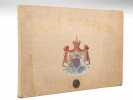
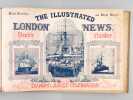
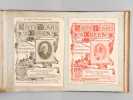


![Oeuvres de L. Stern. . [LIVRES ANCIENS] - STERN (L.)](https://static.livre-rare-book.com/pictures/OEC/_202300739_thumb.jpg)
![Oeuvres de L. Stern. . [LIVRES ANCIENS] - STERN (L.)](https://static.livre-rare-book.com/pictures/OEC/_202300739_2_thumb.jpg)
![Oeuvres de L. Stern. . [LIVRES ANCIENS] - STERN (L.)](https://static.livre-rare-book.com/pictures/OEC/_202300739_3_thumb.jpg)

